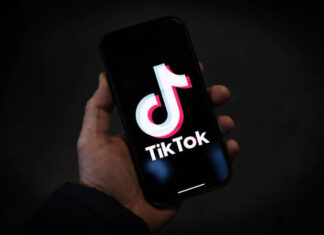When you purchase through links on our site, we may earn an affiliate commission. This doesn’t affect our editorial independence.
What Happens Next After TikTok Ban Discussions?
The ongoing debates about a potential TikTok ban and data security have sparked concerns over data security and geopolitical tensions. As governments and regulators increase pressure, the popular social media app faces a critical moment in several key markets, especially in the United States.
Rising Security Concerns
National security lies at the core of the controversy. Critics argue that ByteDance, TikTok’s parent company, has ties to the Chinese government. This connection raises fears that user data could fall into the wrong hands. Lawmakers have expressed concerns about TikTok’s ability to gather extensive user data, including browsing history, location, and device information. They believe this information could fuel espionage or influence campaigns.
These concerns have led to calls for stricter regulations and, in some cases, an outright ban on the platform. During the Trump administration, similar actions were proposed, including forcing ByteDance to sell TikTok’s U.S. operations.
What a Ban Could Mean
If authorities ban TikTok, the consequences could be far-reaching for its global user base of over a billion people. Besides limiting access to the platform, the ban could disrupt the lives of many content creators and businesses that rely on TikTok for marketing.
The U.S. market is one of TikTok’s largest, contributing significantly to its advertising revenue. Analysts predict that users and advertisers would likely shift to competing platforms such as Instagram Reels, YouTube Shorts, or other emerging alternatives.
TikTok’s Response and Mitigation Efforts
TikTok has continually denied accusations of data misuse or interference from the Chinese government. In response, the company has taken steps to improve transparency. For instance, TikTok is building data storage centers in the U.S. and Europe to store user data locally and ensure it follows strict privacy protocols.
Moreover, TikTok is in talks with lawmakers and regulators to reduce tensions. The company has reaffirmed its commitment to protecting user privacy and complying with international regulations.
Global Implications
The discussions around the TikTok ban and data security extend beyond the U.S. Countries like India have already imposed bans, citing security concerns. European regulators are also reviewing TikTok under the General Data Protection Regulation (GDPR). These actions highlight the broader issue of how governments manage foreign tech companies operating within their borders.
What Lies Ahead?
Although no final decision has been made in the U.S., the ongoing debate highlights growing concerns over digital sovereignty and national security. As governments continue to explore their options, TikTok’s future remains uncertain, leaving creators, businesses, and users in suspense.







